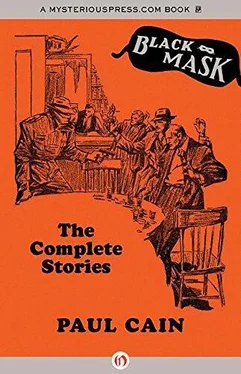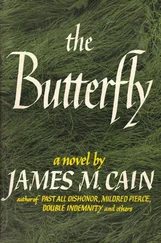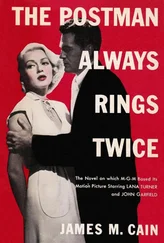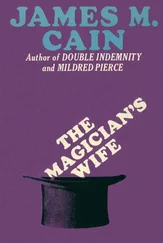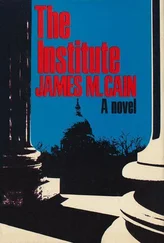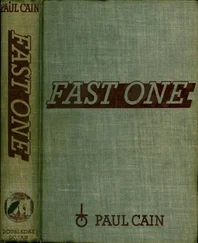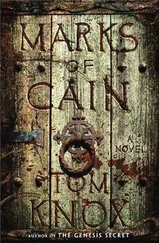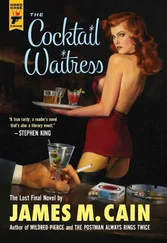Etienne goggled down at these in agape amazement. It must be understood that no man but Etienne and Bubu (who didn’t count, because he was a eunuch) had looked upon Mercedes’ beauty — and lived — since he had abducted her, at the tender age of three, from the seraglio of Yussuf Ben in Khur. True, he allowed her to fly her kite from the roof in pleasant weather, but she was always heavily veiled and...
The kite! He leaped from the meat block and dashed up the back stairs, snatched up a vast towel in passing, wrapped it around his middle, and emerged on the roof. There it was, two hundred yards or so to the north, northeast — the Purple Building! What simpler than for Mercedes to choose a day when the wind was right to communicate, kitewise, with Vincent Vincent, if she so chose? He staggered back and would have fallen if Bubu, who had followed close behind, had not supported him, and for the third time that evening Etienne paled.
“Perfidy,” he piteously wailed, “thy name is woman!” Leaning on Bubu’s shoulder, he reeled back down the stair.
It must here be made of record, somewhat painful record, that Etienne, king among chefs, was a veritable emperor among lovers. The words he whispered into Mercedes’ shell like ears were pure poetry; each morning, noon, and night his impassioned wooing discovered some new expression to delight her heart, bauble to adorn her white perfection, outré and exquisite confection to tempt her tongue. Except, and now we come to the painful part, except for one little thing.
When, in the carefree years of his extreme youth’s extremity, Etienne had by dint of Gargantuan eating and drinking bouts destroyed his digestion, he had also, in spectacular excesses of amorous dalliance, played frightful havoc with his glandular organization. And so, perforce — it must be faced — his well-nigh perfect lovemaking was only well-nigh perfect.
At Mercedes’ door he dismissed Bubu with a heartrending smile, unlocked the door with Vincent’s key, and crossed the tiny cuneus foyer to the bedchamber. Mercedes was still in her bath. He stood a moment listening to her laughter, listening to her sweet voice lifted in a childish song, then crossed to the eastern window. It commanded a perfect view of the Purple Building. In the bottom drawer of a commode he found a Bluejacket’s Manual of Semaphore Signaling , a pair of binoculars, tracing paper that bore the outline of two keys. The evidence was complete and irrefutable. But one thing more he must discover — had the keys been used?
He sat down on a vermilion taffeta tuffet and considered ways and means of Mercedes’ execution. Shooting, stabbing, blunt instruments were emphatically out of the question. To mar the wondrously wrought ivory of that beloved body! Etienne shuddered, gulped in pain. Poison, perhaps, something swift and pleasant to the taste. And then she came into the doorway, fresh from her bath, still with the tinkling song upon her lips, and he looked upon her beauty and knew that he could never murder her.
“Darling,” she said, and her voice was a golden bell, “I am of delight to see you.” She crossed to him and stooped and kissed his forehead. Her mouth was like warm silk.
“Have I been good to you?” he asked, a little tremulously.
“You have been to me an angel,” she said simply. “You are the kindest and best man in all the world, and with all my heart I love you.”
“Have I ever denied you anything?” The Braque still life beneath his left nipple quivered slightly. “Had you not but to wish for Richebourg ‘04, or spun-glass slippers, or” — he bobbed his head at her bed in the opposite corner — “a platinum-mounted trundle bed?”
“You have denied me nothing. You are my bounteous and most munificent lord and master.” Her eyes had fallen on the damning evidence which he had spread out on the tuffet. “And now, because of mistaken jealousy, I am about to die.”
“Mistaken!” It was a broken cry from a breaking heart. “Mistaken?”
She sat down beside him, tenderly fondled his toes. “Mistaken, my love. It all began so innocently, Etienne, almost in jest, this gentle nightmare.”
“Jest!”
She nodded. Her enormous eyes flooded with tears for a moment. She dried them with a tiny kerchief, snuffled delicately, went on:
“One day, less than a month agone, my kite, caught in a capricious down draft, disappeared into an open window of the building there, and when I drew it down, someone had written upon it; these were the words: ‘Veiled enchantress of the roof, I am a poor inventor dry of inspiration and close to perishing. Let me look but once upon your face before I go. I ask no more!’
“What harm, thought I,” she continued, “what harm in granting this poor devil his dying wish, and so, only for an instant, mind you, I lowered my veil. That, I thought, was an end of it.”
“What harm,” Etienne echoed hollowly. “What harm!”
“But no.” Mercedes rose, paced to the door and back in obvious agitation. Dear Allah, thought Etienne, what loveliness. “No,” she said, sinking down beside him, “a few days later my kite once more — what Fates and Furies direct these things? — swooped to that window, and this time he wrote, ‘A plot’s afoot against your master, Etienne de Rocoque, and we must join in a counterplot to foil it!’”
“A plot!” Etienne half rose, sank back.
“Aye. And dangling from my kite were these.” She indicated the binoculars, manual, tracing paper. “Through infinite trial and error, I learned to communicate with him by semaphore from the window there. He swore that if I breathed a word to you about this dark conspiracy against you, all was lost. He told me his name, learned mine.”
“The plot then, what of that?” Etienne cried. “Who was involved?”
Mercedes shook her head. “I begin now to believe that it was only a figment, a tissue of lies,” she said. “Because,” she lowered her eyes, and her whole delightful body flushed a fragile pink, “a week ago he sent me a sonnet.”
“By wigwag?”
She nodded.
“The keys, then,” he demanded gently, “what of the keys?”
“That was before,” she murmured. “He said that he must have some means of gaining entrance to the house, to — these were his words—‘Nip the fiendish designs upon de Rocoque in the bud, just as they are about to flower.’”
Etienne sighed. “My child, my sumptuous child,” he patted her hand, “you have been taken in.”
“I know it now!” She leaped to her feet and danced a little dance. “I know it now, my own true love, my king, my benefactor. But I did it all for you! Can you forgive?”
“The keys,” Etienne’s voice was barely audible, “he never used the keys?”
“Never.” Her innocence was a sword, a shield, a banner. “Never!”
Etienne was smiling, went on in a shaky whisper: “And the Tasting Machine. What of that?”
She stopped in mid-pirouette and gazed at him in puzzlement. “The what?”
“This varlet Vincent followed me home a little while ago. He had a machine that he said he had invented especially for me, and when I asked its price, he said — Etienne’s voice broke a touch — “its price was you.”
Her petaled face darkened; a half hue with anger, curved to a kind of agony. She caught her breath. “The knave,” she muttered in a small spasm of loathing. “The unspeakable blackguard! What have you done with him?”
Etienne rose. “I have put him away,” he said, “in a place where he may dwell for a little while upon the bitter lees of vanity and youthful presumption. For only a little while, my sweet. Then I shall burden him with gold and jewels and send him on his way.”
“And the Machine?”
Читать дальше
